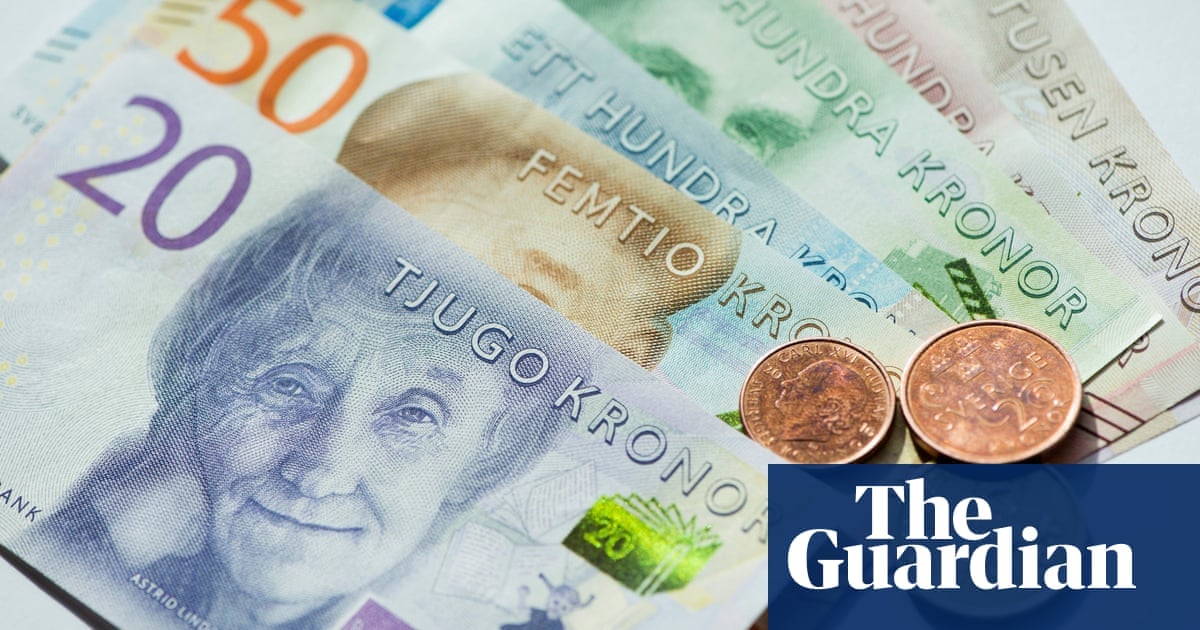cross-posted from: https://feddit.org/post/4262252
A combination of good high-speed internet coverage, high digital literacy rates, large rural populations and fast-growing fintech industries had put the Nordic neighbours on a fast track to a future without cash.
[…]
But Russia’s invasion of Ukraine in 2022 and a subsequent rise in cross-border hybrid warfare and cyber-attacks blamed on pro-Russia groups have prompted a rethink.
[…]
The Swedish government has since completely overhauled its defence and preparedness strategy, joining Nato, starting a new form of national service and reactivating its psychological defence agency to combat disinformation from Russia and other adversaries. Norway has tightened controls on its previously porous border with Russia.
[…]
[Norway’s] justice and public security ministry said it “recommends everyone keep some cash on hand due to the vulnerabilities of digital payment solutions to cyber-attacks”. It said the government took preparedness seriously “given the increasing global instability with war, digital threats, and climate change. As a result, they’ve ensured that the right to pay with cash is strengthened”.
[…]



In America, you can’t open a bank account without an address. That means that the homeless population can’t open a bank account (not easily, anyway), and therefore can’t get a debit card.
Cashless is a nice idea, but it is extremely prohibitive against the most vulnerable people (which, sadly, might be part of the point).
It’s largely a non-issue in the Nordic countries as you basically have to voluntarily opt out of any government aid programs to be homeless, which understandably most don’t. This goes for most, if not all, vulnerable groups; most of the help is decently robust, at least enough to keep you fed and in housing. So I don’t think it’s a very large portion of the consideration, almost everything is paid via mobile pay, checks (any, not just from working) are all done digitally as well.
Its still an issue for refugees and domestic abuse survivors
Ah yes, socialist practices… look how evil it is… taking care of others.
Inhuman communist savages the lot of them!
In Germany any EU resident has a right to a basic account, in case you’re homeless you should have an address because you’re in a shelter, if you insist on sleeping rough (or the municipality is just too fucked up, happens in places) you can give the address of a social work organisation (those are all over also doing debtor counselling and a lot of other stuff).
Only valid reason for a bank to refuse basic business is if you tried to defraud them. They don’t have to give you a credit line, but they do have to accept your money, store it, and let you wire it (incl. POS payments etc).
Identity fraud is not an issue because they’ll want to see a proper ID which, if you’re legally in the country, you have.
It’s less about paying, though, you can always pay with cash in Germany, it’s about the welfare authorities not wanting to handle cash and cheques only if actually necessary.
No homeless person left behind? Shelters for 100% of homeless people at all times?
You have a legal right to shelter, yes. How is that controversial it’s a human right.
The controversial part is that while it’s great and desirable on paper, it’s almost never the case for 100% of the times. Great if it is though.
And it’s also not wanted. A lot of people choose to avoid shelters for a number of reasons.
Honestly, the requirement for an address to get a bank account is stupid, you should merely have to prove your identity, which can be accomplished with a government ID or perhaps a notorized note from a government agency (i.e. you go to the local health center or a social work office and verify your identity or something).
If I wanted to, I could easily fake my address being somewhere it’s not. I get a bunch of junk from the previous residents, and there’s really nothing stopping me from putting someone else’s address as my own (my local family does it when they’re between residences). So I honestly don’t see much point to it.
It’s funny because actually you can receive mails pretty much everywhere without giving an actual address. P.O boxes and post restante. Only banks keep enforcing residential addresses as it was a guarantee of having lack of identity frauds.
I don’t think that’s true, it’s just indicative of someone who’s more stable. That said, I can put down anyone’s addresses and have mail sent to it, my family does it all the time (e.g. my SIL just got married, and they sent their combined bank statements to our house while they were finding a new apartment). All it means is that you can receive mail at a certain address, and that can be as simple as knowing the mail schedule and getting to the mailbox before the residents do (or going through their trash the next day if you miss it).
It’s technically illegal, but I’ve never heard of anyone getting charged w/ accessing someone else’s mailbox… So it’s a pretty low barrier for someone actually committing identity fraud to clear, and a pretty steep barrier for someone who is homeless.
Affordable housing and the threat by malicious actors to attack digital payment systems are two different things. Homelessness has to be addressed, of course, but we are dealing here with something else.
You seem to have missed the point: in many countries, access to a bank account (therefore digital money) is not universal.
I didn’t miss the point, but this is a different topic. We need to provide housing, end homelessness and possibly the right to a bank account for everyone. These are different things.